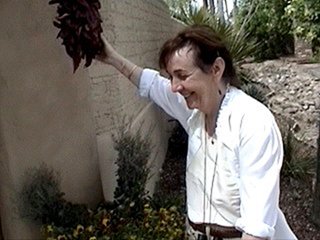 Marianne Bluger (1945 - 2005)
Marianne Bluger (1945 - 2005)
Marianne was born in Ottawa, ON on 28 August 1945.
Education:
Fisher Park High School 1963;
McGill University B.A. 1967 (Univ. Scholar);
Work:
Exec. Sec.-Treas. Canadian Writers' Foundation Inc. 1975-2000;
St. Matthias' Sunday School Superintendent 1977-80;
Christians Against Apartheid (Ottawa) Co-founder 1984;
Haiku Society of Canada Treasurer 1988-91
KaDo: Ottawa Haiku Group Co-founder 2002;
Tabitha Foundation Founding Director 1994-2005.
Author of poetry:
The Thumbless Man is at the Piano 1981;
On Nights Like This 1984;
Gathering Wild 1988;
Summer Grass 1992;
Tamarack & Clearcut (Haiku) 1997;
Gusts (Tanka) 1998;
Scissor, Paper, Woman 2000;
Early Evening Pieces (Haiku) 2003;
Zen Mercies / Small Satoris (Tanka) 2005;
The Eternities 2005;
She died on 29 Oct., 2005, after a long and courageous fight with cancer. Nearly one year later in November 2006 Marianne's final book was be launched - Nude with Scar 2006.
Some recent anthologies featuring Bluger's work:
Eternal Conversations: Remembering Louis Dudek, ed. Skarstedt, Gnarowski, & Collins; DC Books (Montreal), 2003
HAIKU: Poetry Ancient & Modern 2002 MQ Publications (London)
HAIKU: Poésies anciennes & modernes 2003 Éditions Véga (Paris)
Redmoon Press, TANKA Anthology, winter 2003
Various honours for poetry including Archibald Lampman Award for Poetry 1993;
Canada Council Arts B Award 1989;
Marianne’s view on poetry which appeared in Poetry and Spiritual Practice (Selections from Contemporary Canadian Poets), edited by Susan McCaslin for the St. Thomas Poetry Series, 2002:
“Poetry moves me to a kind of reverence - not all of it, but much of the best of it. When I engage with poetry, I become contemplative and mystically transported to a deeper awareness, to a kind of enlivened, prayerful consciousness; and to gratitude. I've always had a gift for it, but thought poetry too frivolous a knack to employ me fully. It was only when I was in my late thirties that I came to see this talent as God-given, i.e. what I was born to do. Before that, it had seemed almost a vice (for which I stole time from duties, and which I practised with such intense pleasure that I thought it, quite probably, immoral).
Poetry soothes and heals me, as I am constantly overwhelmed and often undone by feelings and perceptions. The images and phrases present themselves. I jot them down as a secretary would dictation, and then delight to tinker until they seem perfect. I never could untangle my religious practice of prayerful consciousness, from the articulations themselves. All I am any good at is poems. I have cried to the silent unmoved, unmoving heart of the void: "o Pivot of all, invisible, inviolable Lord, I am lost. Describe my wayward footsteps, in some figure of your dance; guide my track of agitation, in this cycle of distress. And bless my black unknowing: Christ make sense of this stammered evidence I suffer from, the wound of consciousness".
In poetry I am always talking to 'the Other' with a kind of certainty that I am heard; and reporting on present things, however distressing they be.”
A selecton of Marianne’s haiku and tanka:
springtime on the bayou
a gallinule steps lightly
where crocodiles smile
just these big clear stars
and oil field torches burning
in the Texas night
Basho Festival 2003 (Japan) – selection:
in soft summer dark
resting my oars I glide
on floating stars"
With eyes
shut tight I can see
blood beat
& feel
how the living burn
Red ribbons
& a party dress
but night
in her six-year old
refugee eyes
Full bibliography:
http://www.neilyworld.com/neilyworld/mbluger/publish.htm
